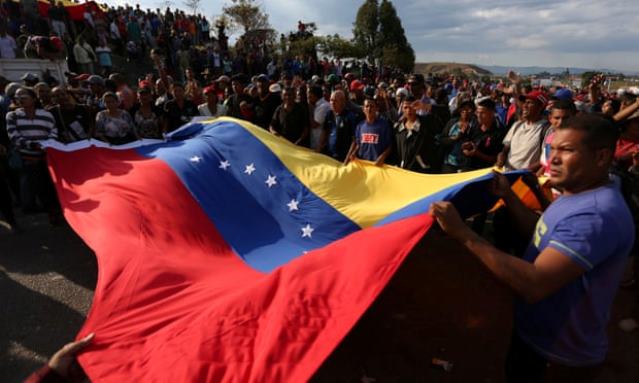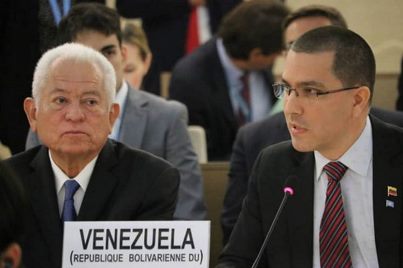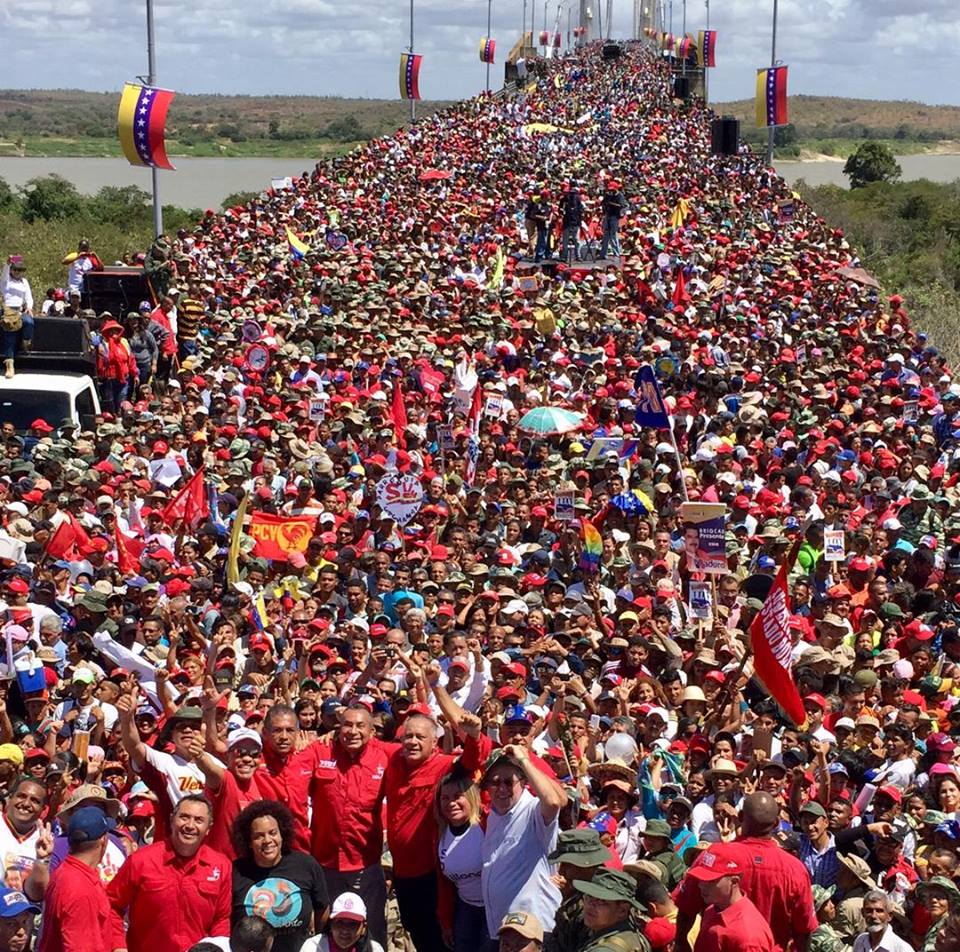
People hold Venezuela’s national flag during a pro-government rally at the border between Venezuela and Brazil. Photograph: Bruno Kelly/Reuters
 Guardian readers Dr Kevin Bannon and Martin Quinn share their perspectives on Venezuela
Guardian readers Dr Kevin Bannon and Martin Quinn share their perspectives on Venezuela
Letters
A principal foreign participant in the US-led campaign to topple the Maduro government is neighbouring Colombia, which has become a crucial hub for Venezuela’s opposition abroad – hence the US secretary of state’s meetings in Bogota (Guaidó’s plea for international support raises fear of military intervention in Venezuela, 25 February).
For well over a generation Colombia has seen political corruption in government and mass murder undertaken by its army and by pro-government “death squads” – violence on a far greater scale than is recently purported to exist in Venezuela. There were, however, no US calls for the overthrow of successive Colombian governments. On the contrary, the US supported the Colombians with armaments, finance and goodwill.
There is no puzzle to this blatant hypocrisy; oil, of which Venezuela has the world’s largest reserves, while the greatest oil consumer is the United States.
Dr Kevin Bannon London

UN Special Rapporteur Idris Jazairy with Venezulan Foreign Minister Jorge Arreaza Dec. 2018
A number of independent experts including UN human rights adviser Idriss Jazairy and Alfred de Zayas, who last year became the first UN rapporteur to visit Venezuela for 21 years, have explicitly said the US is using sanctions as a method of economic warfare against Venezuela and that this is the reason for the economic and humanitarian crisis facing the country.
Earlier this month Mr de Zayas said “this is deliberate homicide, this is murder, this is a crime against humanity, and could be examined under article 7 of the Statute of the ICC”.
However, it is worth noting that despite the devastating impact of US sanctions on Venezuelan society, the most recent (2018) UNDP human development index – which combines measurements of life expectancy at birth, years of schooling and gross national income per capita – ranked Venezuela higher than Brazil and Colombia.
Martin Quinn Tavistock, Devon

Mass rally on Venezuelan side of border Sun. Feb. 24 against U.S. intervention in Venezuela. CNN and other pro-U.S. media showed only the handful of agitators trying to break through from Colombia, to deliver alleged “aid” which was nowhere in evidence.




